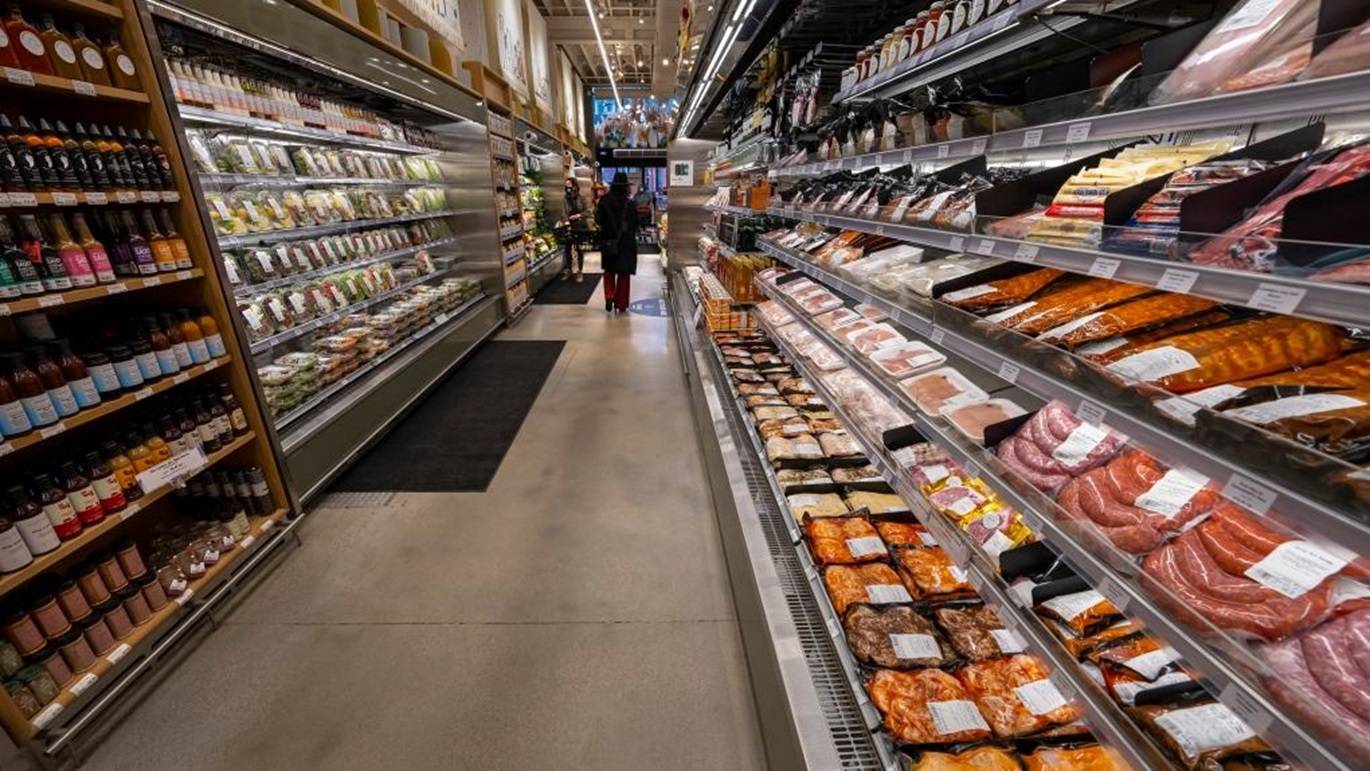
Groceries are shown at Summerhill Market in Toronto on Wednesday February 2, 2022. (THE CANADIAN PRESS/Frank Gunn)
A fresh report anticipates that the cost of food products in Canada will undergo a moderate inflationary increase, ranging from 2.5 to 4.5 percent in the coming year. This projection marks a decline from the average inflation rates observed between five to seven percent throughout 2023.
Comprising more than 30 experts from Dalhousie University, the University of Guelph, the University of Saskatchewan, and the University of British Columbia, the annual report forecasting Canada's food inflation was jointly published on Thursday. The primary aim of this report is to evaluate food policy and expenditures throughout the year while projecting inflation rates for the upcoming year.
An expert involved in the report highlighted the significance of 2024 as the first complete year expected to witness the "normalization" of prices post the COVID-19 pandemic. Sylvain Charlebois, the director of Dalhousie University's Agri-Food Analytics Lab and one of the report's authors, conveyed optimism about the prospects for 2024, characterizing it as a positive development.
The previous year's forecast estimated an overall food price increase between five and seven percent, whereas Statistics Canada data indicated a 5.9 percent food inflation rate. However, the latest edition of the report foresees a reduced inflation rate, expecting it to range from 2.5 to 4.5 percent in 2024.
Charlebois noted a more stable environment currently, potentially resulting in competitive pricing strategies among major retailers. He anticipates increased competition among grocers, offering incentives such as loyalty programs and deals to attract consumers. Furthermore, he mentioned that some products might be sold at a loss initially, intending to stimulate consumer footfall and subsequently drive sales of other higher-priced items.
The report underscored that the past year witnessed significant inflation in various food products, impacting consumers' budgets. Charlebois highlighted that while certain food items experienced substantial inflation, there were cases where prices declined, attributing it to factors like climate dependency and fluctuating market dynamics.
Looking ahead to 2024, the report anticipated price increases across different food categories, notably in bakery products, meat, and vegetables, expected to rise by five to seven percent. Charlebois emphasized the volatility of produce prices and forecasted bakery prices to continue rising. However, he suggested that certain products might not offer the same value as the preceding year.
The report's analysis extended to estimating food costs for various family compositions, projecting an increase in spending for the upcoming year due to altered shopping patterns and moderating food prices.
Factors contributing to future food cost escalations encompass socio-economic, environmental, and political issues, including the significant influence of climate change and geopolitical risks. The report highlighted the likelihood of increased costs due to conflicts impacting commodities like wheat and sunflower oil, coupled with heightened energy costs and inflation contributing to overall food price increases. Regional variations in food inflation were projected, with some provinces anticipated to experience decreases in food costs compared to others.















